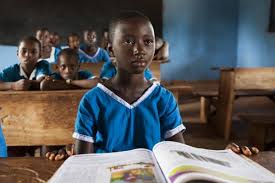It further noted that schoolchildren were more vulnerable to abuse, child marriage and child labour in the absence of the safety that schools often provided.
“Without school meals, children are left hungry and their nutrition is worsening.
“Without daily interactions with their peers and a reduction in mobility, they are losing physical fitness and showing signs of mental distress,” UNICEF warned.
The UN agency noted that the number of out-of-school children is set to rise by 24 million to a level not yet seen in years and to a level it has fought so hard to overcome.
“Devastating cost of school closures will affect 90 per cent of students worldwide and deny a third of school children access to remote education.
“Children’s ability to read, write and do basic mathematics has suffered, and the skills they need to thrive in the 21st-century economy have diminished.
“Their health, development, safety and well-being are at risk. The most vulnerable among them will bear the heaviest brunt.
“Without school meals, children are left hungry and their nutrition is worsening.
“Without daily interactions with their peers and a reduction in mobility, they are losing physical fitness and showing signs of mental distress,” UNICEF stated.
The agency further noted that shutting of schools must be a last resort after all other options have been exhausted, adding “Assessing the risk of transmission at the local level should be a key determinant in decisions on school operations.
“Nationwide school closures must be avoided whenever possible.
“Where there are high levels of community transmission, where health systems are under extreme pressure and where closing schools is deemed inevitable, safeguarding measures must be put in place.
“This includes ensuring that children who are at risk of violence in their homes, who are reliant upon school meals and whose parents are essential workers are able to continue their education in their classrooms.
“In the case of lockdowns, schools must be among the first to reopen once authorities start lifting restrictions.
“Catch-up classes should be prioritised to ensure that children who have been unable to learn remotely are not left behind.
“If children are faced with another year of school closures, the effects will be felt for generations to come,” UNICEF warned.
source: Punchhealthwise

 The United Nations Children’s Fund says closure of schools due to the COVID-19 pandemic will impact negatively on the development, safety and wellbeing of children globally, noting that schools are not drivers of the viral disease
The United Nations Children’s Fund says closure of schools due to the COVID-19 pandemic will impact negatively on the development, safety and wellbeing of children globally, noting that schools are not drivers of the viral disease




